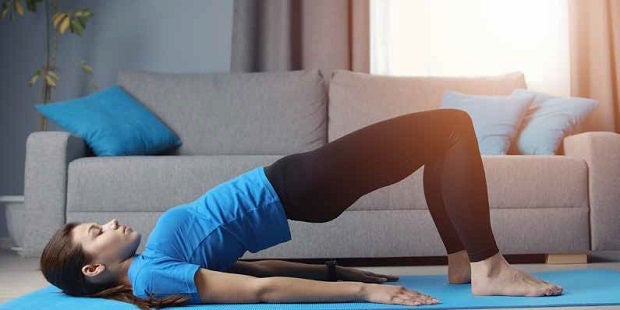
Worldwide, about 30 to 50 per cent of women of all ages suffer from female sexual dysfunction.
Exercise can help female sexual dysfunction (FSD), a complex but relatively common condition that requires a holistic treatment approach.
FSD can manifest as difficulty or inability in maintaining arousal or reaching orgasm. Women with genito-pelvic pain or penetration disorder may experience dyspareunia (pain during intercourse) or vaginismus, where muscles of the vagina go into spasms, making sex painful or impossible. For the condition to be classified as a dysfunction, symptoms must cause marked distress or interpersonal difficulties lasting for a period of time.
“As the cause of FSD is typically multifactorial, some patients may wish to consult a multidisciplinary team of medical professionals, including doctors, psychologists, physiotherapists and counsellors, to better assess and treat their condition holistically,” said Dr Jean-Jasmin Lee (below), Consultant, Family Medicine Service, KK Women’s and Children’s Hospital (KKH).

Don’t wait to seek help
“In our Asian society, women are generally shy to discuss intimacy issues and they may not know where to seek appropriate help,” said Dr Tan Tse Yeun (below), Senior Consultant, Department of Reproductive Medicine, KKH.

The majority of patients who turn to KKH’s Sexual Health Clinic under the KK Women’s Health and Wellness Centre tend to seek help only when they have failed to conceive.
“If unresolved, FSD can affect mental and physical health, as well as the relationship and quality of life for both the woman and her partner. It is also a key barrier to conception and procreation,” Dr Tan said, urging couples facing such issues to seek help earlier to improve treatment outcomes.
KKH’s Sexual Health Clinic has managed an average of 90 new FSD cases annually for the past three years. Most of the patients are in their 30s with primary vaginismus.
In 2020, the clinic saw 100 new cases of vaginismus, a sharp 60 per cent increase compared to 2017.
“The main reason for the increase in the number of vaginismus cases is due to increased awareness among members of the public and healthcare providers surrounding sexual dysfunction and where to seek help,” Dr Tan explained.
Treatments available
Therapy may involve treatment of the contributing medical conditions, sexual education, emotion regulation, pelvic floor muscle rehabilitation, or relationship counselling.
“Research has shown that pelvic floor muscle training raises blood flow in the arteries leading to the vulvovaginal tissue, improves relaxation capacity, and increases the elasticity of vulvovaginal tissue in menopausal women. This reduces symptoms like sexual pain, incontinence and vaginal dryness,” said Ms Caroline Chua (below), Senior Principal Physiotherapist, Physiotherapy Department, KKH.

Benefits of exercise
When it comes to exercise, the physiotherapist’s main role is to optimise the physical functions of the patient to promote better sexual function, address the individual’s concerns, and customise a suitable exercise programme that will cater to her needs.
“Recommended exercises are aimed at allowing the patient to increase muscular awareness, association and relaxation. Pelvic floor muscle rehabilitation is also part of physiotherapy management to improve sexual health in women. Part of this rehabilitation will involve educating patients to differentiate between tense and relaxed muscles. Devices may be introduced to improve therapy outcome,” Ms Chua said.
Read more: What are pelvic floor exercises? KKH doctors explain how to do them correctly
Regular exercise, such as cardiovascular exercises (jogging, swimming and brisk walking) and relaxation-based exercises (yoga, pilates and stretching exercises), can indirectly enhance sexual satisfaction by improving cardiovascular health and mood. Exercising also improves one’s body image and psychological well-being, which impacts libido, sex and intimacy, and can lead to an increase in sexual well-being. Exercise is also beneficial for women who experience sexual difficulty due to the use of anti-depressant medications, or after a hysterectomy (a surgery to remove the womb).
One-stop centre
The Sexual Health Clinic is housed under the new KK Women’s Health and Wellness Centre, which provides a wide spectrum of healthcare services for women at all stages of their lives. It offers comprehensive and confidential sexual health services, as well as women’s advocacy services for sexual assault victims.
The centre also includes the Sexually Transmitted Infection Clinic, the Contraimplant Clinic (for the insertion or removal of contraceptive implants), the Multi-Disciplinary Vulval Clinic (to treat complex vulval conditions), and a Menopause Clinic.
Get the latest updates about Singapore Health in your mailbox! Click here to subscribe.













 Get it on Google Play
Get it on Google Play